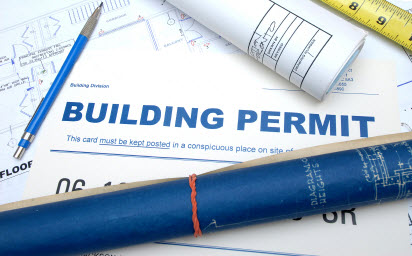When it comes to undertaking construction or renovation projects, obtaining the necessary building permits is a crucial step in ensuring safety, compliance with building codes, and a hassle-free construction process. However, there are several misconceptions surrounding building permits that often lead to confusion and delays. In this blog, we will debunk five common misconceptions about building permits, shedding light on their importance and dispelling myths.
Misconception 1: Permits are Only Required for Major Projects
One prevalent misconception is that building permits are only necessary for significant construction or renovation projects. While it’s true that larger projects like building a new home or adding an entire wing to an existing structure typically require permits, smaller projects are not exempt. Even seemingly minor modifications such as electrical or plumbing work, structural changes, or changes to a building’s occupancy often necessitate permits. It’s essential to consult with your local building department to determine whether a permit is required for your specific project.
Misconception 2: Permits are a Mere Formality
Some individuals view building permits as bureaucratic hurdles, assuming that they are merely formalities that can be bypassed. In reality, building permits serve a crucial purpose. They ensure that your project complies with safety regulations and building codes, protecting both the occupants and the structural integrity of the building. Failing to obtain the necessary permits can result in costly fines, mandatory project halts, or even demolition in extreme cases.
Misconception 3: Permits are Too Time-Consuming
Another misconception is that the permitting process is excessively time-consuming and will cause significant delays in your construction timeline. While it’s true that the permitting process can take time, it is a crucial step that helps prevent issues down the road. Many municipalities have streamlined their permitting processes to expedite approvals for minor projects, and the time invested in obtaining permits is often well worth it to avoid potential legal and safety complications.
Misconception 4: You Can Begin Construction Before Receiving Permits
This misconception is not only inaccurate but can also lead to legal and financial consequences. It’s essential to wait for your permits to be approved before commencing any construction work. Starting construction prematurely without the necessary permits can result in stop-work orders, fines, and the requirement to dismantle completed work to bring it up to code. It’s a risk that no responsible builder or homeowner should take.
Misconception 5: Permits are Expensive and Unnecessary
Some believe that building permits are expensive and not worth the investment. While there is a cost associated with obtaining permits, it varies depending on the scope of your project and your location. The expense typically covers the cost of plan reviews, inspections, and administrative fees. However, these costs are relatively small compared to the potential financial consequences of unpermitted construction. Moreover, permits are essential for ensuring that your project is completed safely and up to code, which can save you money in the long run by avoiding costly repairs or legal issues.
In conclusion, building permits are not to be underestimated or taken lightly. They are not mere formalities but essential tools for ensuring the safety and compliance of construction projects. Rather than hindrances, permits are safeguards that protect both builders and occupants from potential risks and liabilities. When embarking on any construction or renovation project, it’s crucial to consult with your local building department, understand the permit requirements, and follow the proper procedures to ensure a smooth and legally compliant construction process. By dispelling these common misconceptions about building permits, you can make informed decisions and avoid the potential pitfalls associated with unpermitted construction. Remember, it’s always better to be safe, legal, and prepared when it comes to building permits.




















